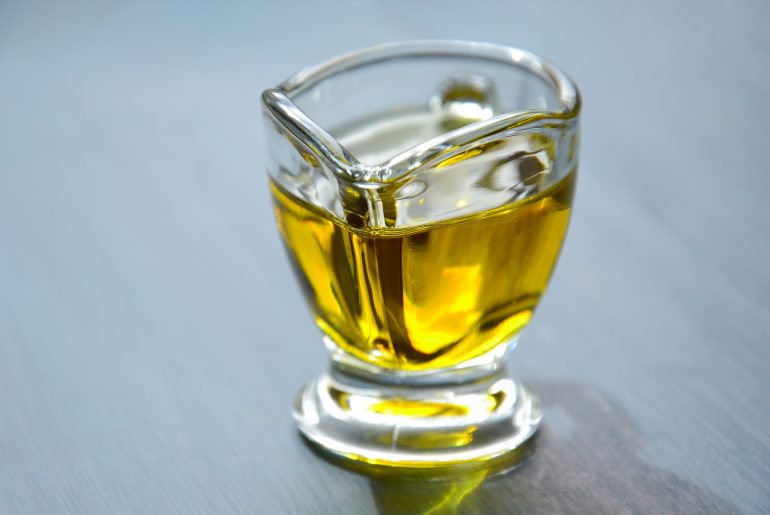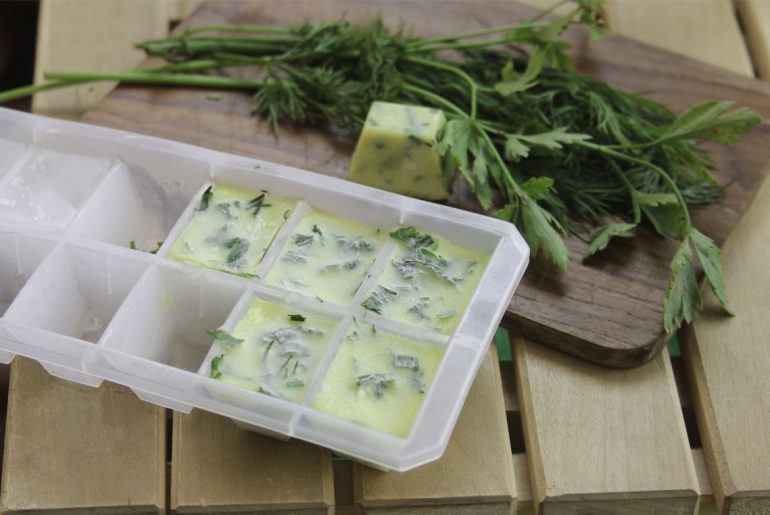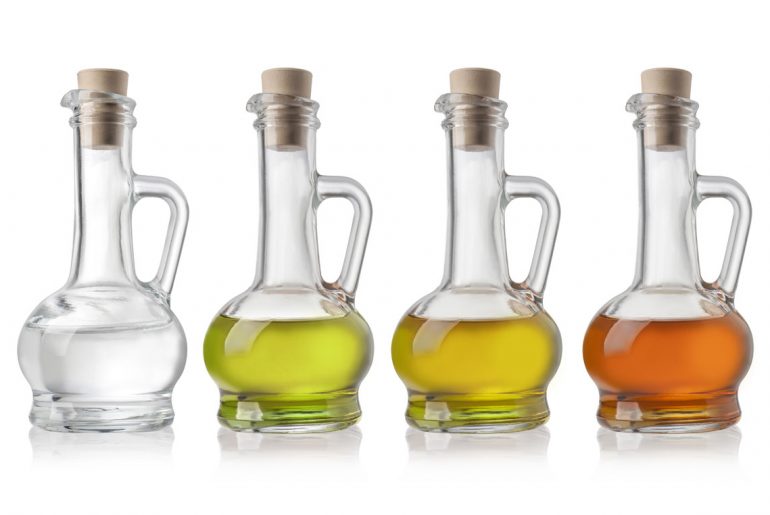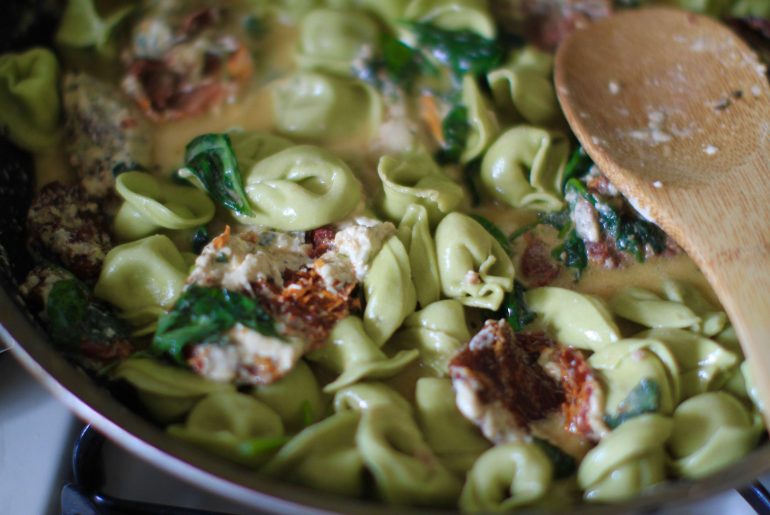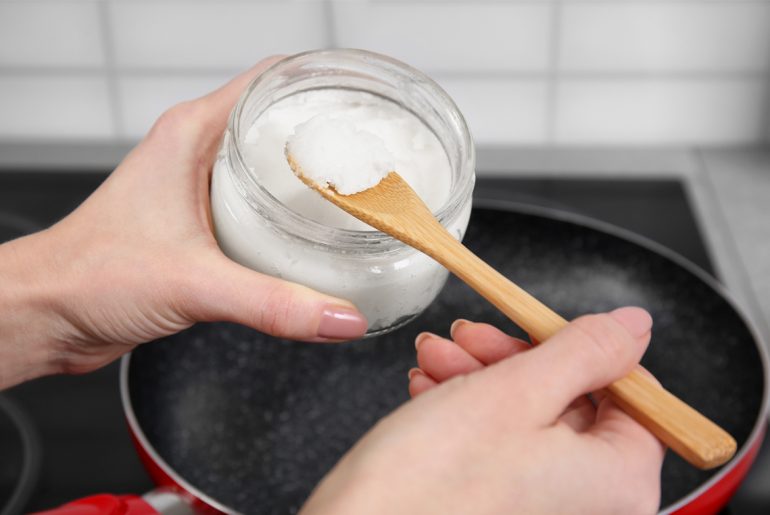It can be easy to get canola oil and vegetable oil mixed up. Both are extremely common pale yellow, neutrally flavored, inexpensive oils with high smoke points making them great for high-heat cooking or frying. But these two vegan-friendly options are just as great for baking and sautéing. So, what’s the difference between them, and can they be used interchangeably? The short answer: Canola oil is actually a type of vegetable oil, so yes! You can use canola or vegetable oil when a recipe calls for either. What’s the difference between vegetable and canola oil? Canola oil is a specific type of vegetable oil. It is always derived from the rapeseed plant, a bright yellow plant resembling the mustard seed. The seeds go through an extremely lengthy process before their oils can be extracted. Vegetable oil is a catch-all oil, which — fun fact — does not actually include any…
Freezing herbs and other methods to make them last all winter
The cool, fall weather has been here long enough that most gardens are finally on their last leg. For many, the biggest draw of a home garden is the easy access to fresh herbs. But soon it will be too cold, and there won’t be any herbs left to pick straight from the garden. So what can you do to prolong access to your herb garden? Each herb favors different types of treatments, so Doug Oster, garden editor for the Tribune-Review and Everybodygardens.com gave us the dirt on how to best save each of the common herbs in the coming winter months. Move herbs Indoors If you grew herbs in containers this summer, some of them may continue to thrive if you bring them indoors. “There are certain herbs that will happily keep going on the window sill,” said Oster. “Rosemary, thyme, sage, mint, lemon balm. Those will be happy to limp along near a window indoors. They’re not going to look…
Confused about cooking oil options? Here’s how to handle the most common ones
From sautéing to drizzling, it seems recipes requiring oil are everywhere. But with so many options out there, knowing how to pick the right one can be confusing. Don’t get sidetracked with fancy glass bottle packaging and product labels. Flavor and smoking point are the most important factors matter when making the choice between popular oils like canola oil, coconut oil, olive oil and relative newcomer, avocado oil. Here’s what you should know: smoking POINT Smoking point is the temperature at which oils start to smoke and burn. Every oil and fat has one whether it’s butter, margarine or canola, when you cook an oil past it’s smoking point, it will taste terrible. If you’re cooking foods at high heat, be sure to pick an appropriate oil. Vegetable oil Smoking point: between 400 to 450ºF Best for: Frying, achieving crispy, crunchy textures in food Taste: Neutral Nutrition: Calories per tablespoon, 124; Fat per tablespoon, 14…
Sun-Dried Tomato Basil Tortellini with creamy spinach and cheese sauce
It’s a classic combo that never disappoints: Sun-dried tomatoes, spinach, basil, garlic and fresh mozzarella. This modern variation on those Old-World flavors is easy to make, but tastes like something you would order at your favorite Italian restaurant. Be sure to serve with some slices of crusty bread to soak up the creamy mozzarella sauce. The fresher the ingredients, the better your dish will be. Since it’s summer, definitely go for fresh basil — maybe grown in your own yard. And pro tip: always spring for fresh cheeses, particularly parmesan. Sun-Dried Tomato Basil Tortellini with creamy spinach and cheese sauce Serves 3-4: 30 minutes Ingredients 1/2 cup sun-dried tomatoes separated from oil (I like to visit my local grocer’s antipasto bar for freshness) 2-3 tbsp oil (drained from sun dried tomatoes, see above) 4-5 cloves garlic, finely minced 2 big handfuls of spinach (about 3-4 ounces) 1 and 1/4 cup half and half…
New American Heart Association Study Warns Against Coconut Oil
Superfood fans take caution. The American Heart Association recently released a report advising against consuming coconut oil. Coconut oil has seen a growing following in recent years as fans viewed it as an almost miracle-like fat and butter alternative, particularly with the paleo set. Touted as a superfood, cooking with the waxy white solid was said to burn fat, kill harmful microorganisms, curb hunger and improve cholesterol levels. But researchers recently found that coconut oil increased LDL (“bad”) cholesterol in seven out of seven trials, and they failed to see a difference between coconut oil and other popular oils high in saturated fat like butter, lard and beef fat. In fact, 82 percent of the fat in coconut oil is s saturated, while butter (63%), beef fat (50%) and pork lard (39%) contain less. Frank Sacks, lead author on the report, said he has no idea why people think coconut oil is healthy — I’s almost…

